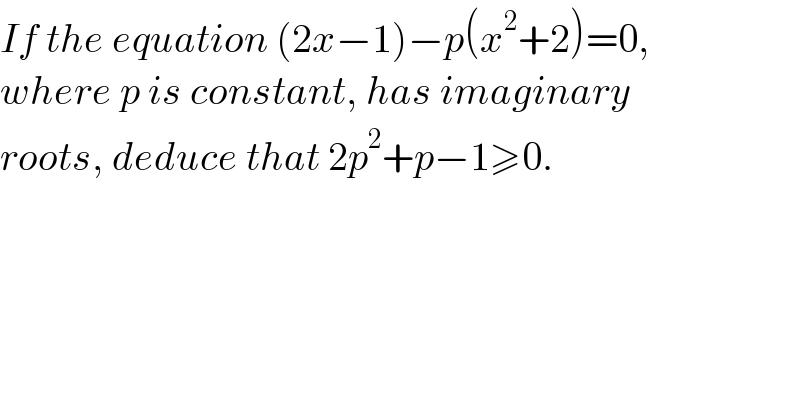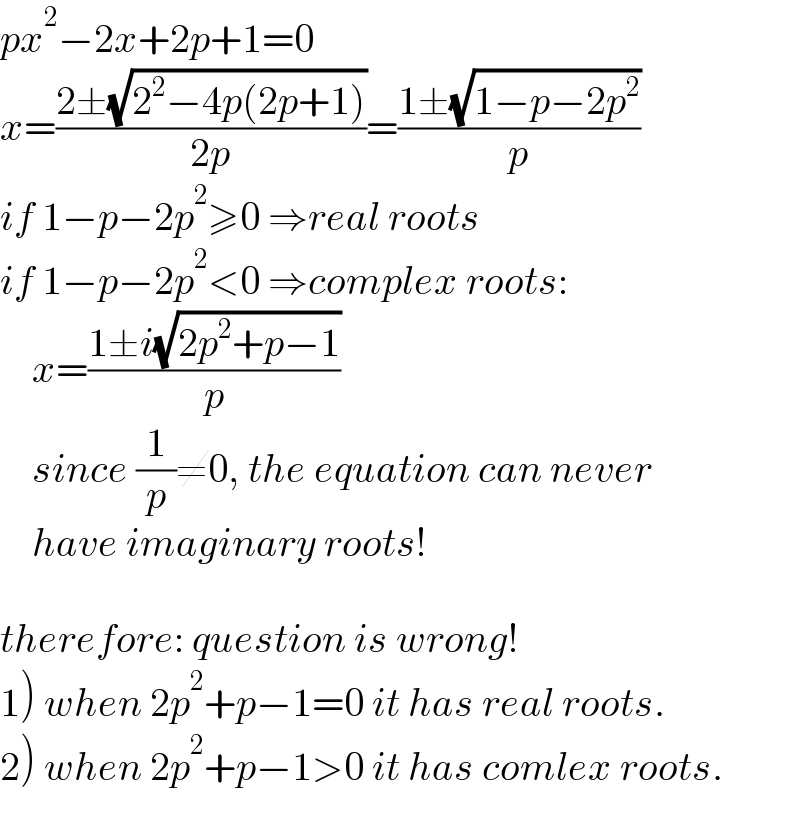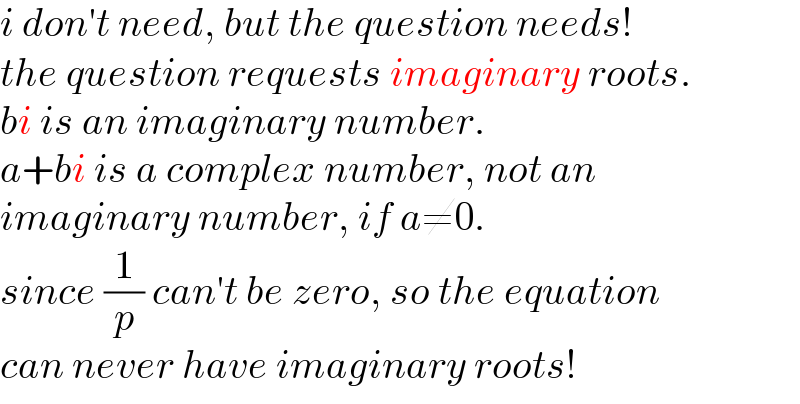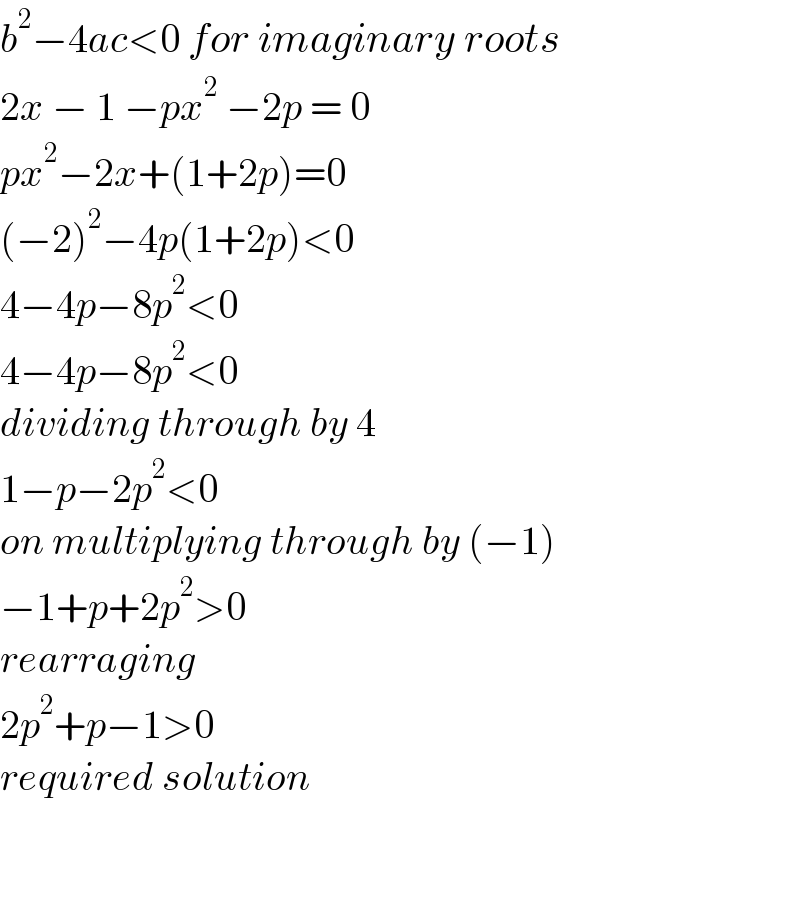
Question and Answers Forum
Question Number 165651 by MathsFan last updated on 06/Feb/22

Commented by mr W last updated on 06/Feb/22

Commented by peter frank last updated on 06/Feb/22

Commented by MathsFan last updated on 06/Feb/22

Commented by chrisbridge last updated on 06/Feb/22

Commented by mr W last updated on 06/Feb/22

Answered by chrisbridge last updated on 06/Feb/22

Commented by mr W last updated on 07/Feb/22

